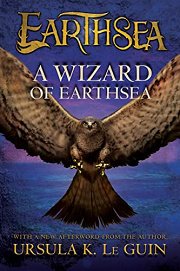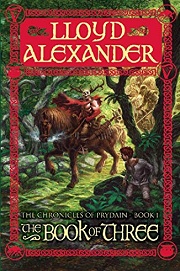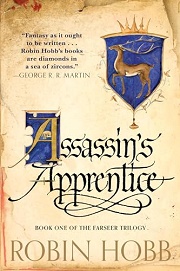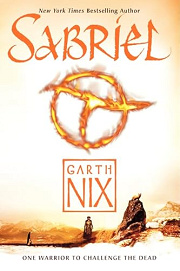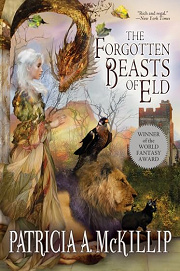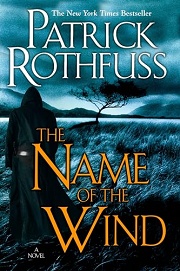Share your thoughts in a quick Shelf Talk!
A Wizard of Earthsea by Ursula K. Le Guin
A gifted boy sets sail among isles of dragons, shadows, and old magic, learning the true name of power and the price of pride. Spare, mythic, and unforgettable, A Wizard of Earthsea is a landmark fantasy about growing up, facing the self, and finding balance in a living world.
Have you read this book? Share what you liked (or didn’t), and we’ll use your answers to recommend your next favorite read!
Love A Wizard of Earthsea but not sure what to read next?
These picks are popular with readers who enjoyed this book. Complete a quick Shelf Talk to get recommendations made just for you! Warning: possible spoilers for A Wizard of Earthsea below.
In A Wizard of Earthsea, did you enjoy ...
... a headstrong boy’s journey from arrogance to hard‑won maturity and balance?
The Book Of Three by Lloyd Alexander
If what gripped you in A Wizard of Earthsea was Ged’s transformation—from the proud youth who provokes the duel with Jasper and unleashes a shadow, to the wiser mage who chases it across sea and stone—you’ll love following Taran as he leaves Caer Dallben, stumbles through battles with the Horned King, and learns humility from companions like Gurgi and Eilonwy. Like Ged facing the dragon of Pendor and ultimately naming his own darkness, Taran’s trials are about earning wisdom, not just winning fights.
... the quiet, formative bond between a wayward novice and a patient mentor?
Assassin's Apprentice by Robin Hobb
If the steady guidance of Ogion the Silent—teaching Ged patience in the fog-bound hills of Gont before Roke—was your favorite thread, Assassin’s Apprentice will resonate. Fitz’s halting apprenticeship under Chade (and Burrich’s stern care) mirrors that intimate shaping: candlelit lessons, hard-won self-control, and skills that cut both ways. Much as Ged must learn when not to speak a true name, Fitz must decide when (and whether) to use the Wit and the Skill, with consequences that stick.
... the moral weight of using dangerous magic and the cost of crossing forbidden lines?
Sabriel by Garth Nix
If Ged’s reckless summoning during the duel—and the long penance of tracking the shadow across the Archipelago—hooked you for its ethical stakes, Sabriel hits the same nerve. Sabriel inherits necromantic duties and crosses into Death with bell and charter mark, much as Ged navigates true names and balance. Her choices—binding the Dead, confronting Kerrigor, and accepting the burden her father bore—echo the way Ged confronts what he unleashed and accepts responsibility for mending it.
... mystery‑steeped, name‑bound magic that works by lore and intuition rather than strict mechanics?
The Forgotten Beasts Of Eld by Patricia A. McKillip
If Earthsea’s magic—true names, the Doorkeeper’s riddles, and the sense that the world’s balance matters more than spell lists—enchanted you, The Forgotten Beasts of Eld is perfect. Sybel summons ancient creatures by knowing their names, and the story’s power lies in lyrical, mythic logic rather than rules lawyering. As with Ged’s pact with the dragon of Pendor and the naming at the end, names and choices carry deep, poetic weight—and the cost of power is intensely personal.
... a rigorous, lore‑rich education in magic under exacting masters and tests?
The Name Of The Wind by Patrick Rothfuss
If you loved Ged’s years on Roke—the Master Namer’s lessons, the Doorkeeper’s test, and the slow mastery that follows the misstep with the shadow—Kvothe’s stint at the University will scratch the same itch. You’ll get naming lessons with Elodin, arcane disciplines with harsh tuition to match, and the kind of institutional challenges (rivalries, punishments, doors that won’t open) that recall Ged and Jasper’s tensions and the way study shapes a wizard into something steadier and wiser.
Unlock your personalized book recommendations! Just take a quick Shelf Talk for A Wizard of Earthsea by Ursula K. Le Guin. It’s only a few questions and takes less than a minute.
